Reciprocal IVF at abc ivf
Reciprocal IVF is a wonderful way for both partners in a same-sex female couple to be involved in the journey to parenthood. One partner provides the eggs, while the other carries the pregnancy, so both play a part in the pregnancy of their child. This fertility treatment is gaining popularity, and we’re here to guide you through every step of the process.
To get started, both partners will need an advanced ultrasound and a joint consultation with us so we can assess the fertility of both partners and advise you on the best treatment options to help you start your family. To book your appointments, or to learn everything you need to know about this fertility option, read on.

What is Reciprocal IVF?
Reciprocal IVF, also known as 'partner IVF' or 'shared motherhood,' is a process that allows both partners in a same-sex female couple to be actively involved in their child’s conception, gestation, and birth. This method is becoming more prevalent and is admired around the world for providing both partners with the opportunity to share in the experience of bringing a new life into the world.
Over the years, we’ve supported many same-sex female couples trying to conceive. If you have any questions about reciprocal IVF or how to start treatment, please contact our experienced team, who will be happy to help.

Who is Reciprocal IVF Suitable For?
Reciprocal IVF is an excellent choice for same-sex female couples and couples who both have female reproductive organs. It allows both partners to be intimately involved in the process of having a baby. In this treatment, one partner provides the egg while the other carries the pregnancy, allowing both to actively participate in bringing their child into the world. It’s a special way for couples to experience and share the journey of parenthood.
The Reciprocal IVF Process: Pre-Treatment Steps
Reciprocal IVF is a well-known and successful method that has provided numerous lesbian and female same-sex couples with the chance to grow their families. Here’s a clear guide to how the treatment works.
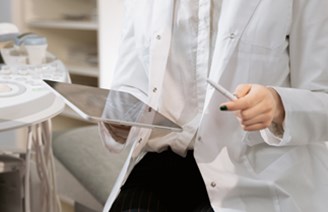
Step 1: Ultrasound scan
First, you and your partner will both undergo an ultrasound scan to understand both of your fertility. During this appointment with a fertility nurse consultant, you'll have a detailed pelvic assessment scan that will assess your egg reserve, uterine health, endometrium, ovaries and follicles. We may also recommend you both to have an AMH blood test.

Step 2: Consultation
A few days later, you’ll both have your initial consultation with a fertility nurse who will talk through your scan results, medical history, and consent forms and put together your personalised treatment plan to give you the best chance of success. They will also discuss your options for using donor sperm, either from our partner clinic CREATE Fertility’s Sperm bank or from an external sperm bank.

Step 3: Counselling Session
Designed to assist with the emotional aspects of IVF, we offer one session of counselling with an external counsellor included in your cycle. The counselling session allows you to openly discuss any worries, expectations, or feelings with a professional counsellor. They will guide you through emotional challenges, offer stress management techniques, and promote effective communication between partners. This can be taken at any point during your treatment.
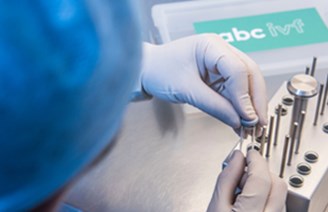
Step 4: Treatment Consultation
You will now need to have a treatment consultation with a nurse. This is where we will ensure you are ready to begin treatment. This includes checking all consent forms are signed, teaching you how to administer the medication, ordering the medication, and talking you through what the process will involve.
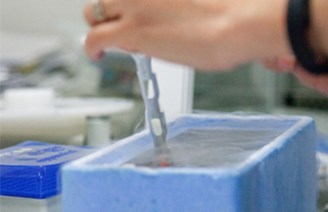
Step 5: Organising the Donor Sperm
Whether you decide to use sperm from the CREATE Sperm Bank or source it yourself from a reputable external sperm bank, we will be happy to assist you in ensuring the sperm meets all quality and screening requirements. We will then help you order it and organise it to be transported to our clinic. The sperm is then processed and stored until it’s ready to be used for fertilising the eggs.
The Reciprocal IVF Journey: Detailed Partner-Specific Steps
Reciprocal IVF is a collaborative and highly personal journey with several important stages. Each step is essential for achieving the best results.
Partner Donating Eggs
Let’s begin by outlining the process, starting with the partner who will donate eggs.
- Schedule the first scan:
Contact the clinic on the first day of your period to arrange your first monitoring scan. - Starting your medication:
Follow your prescribed medication protocol to stimulate your ovaries and prepare your eggs for collection. - Scans and blood tests:
Attend your scheduled scans and blood tests to monitor follicle growth and adjust medication as needed. - Preparing for egg collection:
When follicles are sufficiently mature, you’ll receive detailed instructions on preparing for the egg collection procedure. Including when to take your trigger shot. - Egg collection procedure:
Visit the clinic for your egg retrieval, which will be performed under sedation for your comfort. Blood tests will also be done during this visit. - Fertilisation and embryo development:
Your eggs will be fertilised with the donor sperm, and then our team of embryologists will monitor embryo growth, ensuring proper development . - Freezing embryos:
We’ll freeze the embryos once they have reached the right stage of development. This is so that we can ensure that they are at the right stage when the receiving partner is ready for the embryo transfer.
Partner Receiving Embryo
After donating the eggs and freezing the embryos, the next phase of reciprocal IVF involves preparing for and undergoing embryo transfer. This phase is essential for creating the optimal conditions in the receiving partner’s uterus for embryo implantation. Here’s what you can expect:
- Schedule the first scan:
On the first day of your menstrual cycle, call us to arrange your first monitoring scan for 7-9 days into your cycle. This scan will check the development of your uterine lining to ensure it’s responding well to hormone treatments. - Start hormonal medication:
From the second day of your cycle, begin taking the prescribed hormonal medication, often oestrogen-based, to thicken your uterine lining (endometrium) and prepare it for the embryo. - Ultrasound scan to assess uterine lining:
Around days 7-9 of your cycle, you’ll attend the monitoring scan at the clinic. Your doctor will measure the thickness and quality of your uterine lining, aiming for a minimum thickness of 7-8mm with a triple-layered structure. - Begin progesterone therapy:
After confirming that your uterine lining is ready, you’ll start progesterone therapy, typically through vaginal pessaries. Progesterone helps maintain the uterine lining and supports early pregnancy after embryo transfer. You will be instructed on how to use the pessaries at home, allowing you to manage this part of your treatment comfortably in your environment. We’ll provide clear guidance on how to administer the medication and answer any questions you may have to ensure you feel confident and supported. - Frozen embryo transfer:
The best quality frozen embryo will be selected and transferred into your uterus. This is a crucial step in your journey, as it brings you closer to the possibility of pregnancy. - Pregnancy test:
Approximately 12 days post-transfer, take a pregnancy test to check for a successful outcome. - Early pregnancy scan:
If the pregnancy test is positive, an early scan will be scheduled around 6 weeks gestation to confirm the pregnancy and that everything is progressing well. If the scan is negative or if you have any concerns, we will discuss the results and decide on the appropriate next steps.
*What's included in our Reciprocal IVF package?
Our abc Reciprocal IVF package is a comprehensive and affordable fertility package which includes:
- Treatment consultation
- Screening tests for both partners (Hepatitis B, Hepatitis C & HIV)
- Monitoring scans & blood tests (Oestradiol & Luteinizing Hormone)
- HFEA fee
- Ovarian stimulation & trigger medication
- Medication for frozen embryo transfer
- Expert clinical advice
- Counselling (elective)
- Egg collection & sedation
- Embryo freezing & 2 years storage
- Thawing & further embryo culture
- Frozen embryo transfer
- Up to 3 weeks luteal support
- Early pregnancy scan
- Follow up consultation
Why Choose Reciprocal IVF?
Reciprocal IVF is a great option for couples who want to share the experience of creating and raising a child, especially for lesbian and same-sex female couples. It's a way to overcome certain fertility challenges such as if one partner has a low egg reserve or blocked fallopian tubes and also helps ensure both parents have legal rights to the child.

Why Choose abc ivf for IVF Treatment
We are passionate about helping same-sex couples start and grow their families. As the only low-cost clinic to offer Reciprocal IVF / Shared Motherhood, we are delighted to have helped many patients have babies using this treatment. With success rates above the national average, along with caring and friendly staff, we aim to make your journey to parenthood as stress-free as possible.
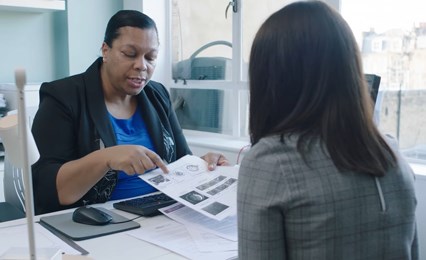
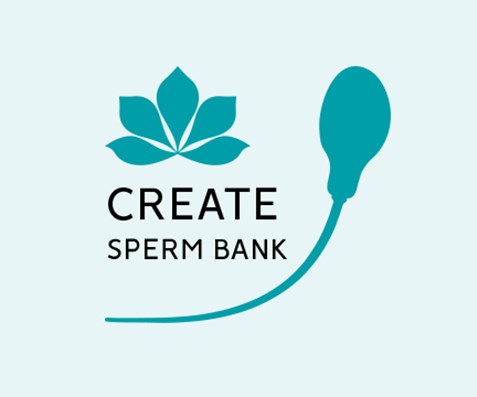
Access to CREATE Fertility’s Donor Sperm Bank
If you require donor sperm, our partnership with CREATE Fertility provides our patients access to a diverse selection of donors.
CREATE Fertility ensures that only the highest quality sperm is accepted, all from donors who have passed a stringent HFEA screening process. This commitment allows us to offer our patients the best possible success rates.
We will collaborate with both partners to identify a donor that matches the couple’s specific characteristics, including details about skin, eye, and hair colour, as well as education and medical history.
If we cannot find a suitable match, we can also accommodate known donors or donor sperm from selected external sperm banks, though this will incur an additional charge.
What are the Success Rates of Reciprocal IVF?
At abc ivf, we have good IVF success rates. We generally see results that are in line with standard IVF procedures or above the national average. The key factors influencing success include the age and health of the egg provider, the quality of the embryos, and the receptivity of the recipient’s uterus.
Our data shows that if the egg provider is under 35 and the embryo quality is high, the chances of a successful outcome are strong. We’re committed to providing personalised care and detailed success rates based on each unique situation, so you can have a clear understanding of your potential journey with us.

Our Reciprocal IVF Success Stories
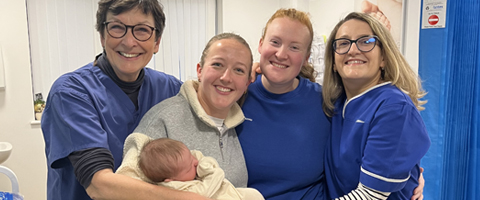
Sophie & Hayley's Reciprocal IVF story
Everything was really well explained every time we had a question or something we didn't understand, either Polly or Bridget or someone else at the clinic were all absolutely brilliant...The staff at abc were amazing. The way they treated us was second to none.
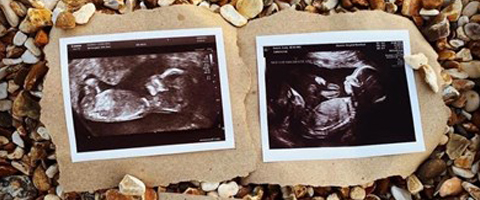
Kerry & Emily's Reciprocal IVF story
We’re really grateful to be pregnant and be in the position that we’re in. I think one really nice thing is how many people have supported our journey particularly because we're of the same sex as-well...We would recommend abc in a heartbeat, 100% without a doubt...The exceptional care, expertise, and support they received contributed to their positive experience.
Reciprocal IVF Frequently Asked Questions
Why is a frozen embryo transfer preferred over a fresh transfer?
Egg collection and embryo transfer are timed according to a woman's menstrual cycle. It's quite challenging for both cycles to align perfectly for a fresh embryo transfer. Consequently, egg collection is synchronised with the egg donor's cycle. The eggs are then fertilised and frozen, so they are ready for transfer when the recipient's uterus is optimally prepared.
What information can you get on the sperm donor?
We partner exclusively with accredited and licensed sperm banks to ensure the highest quality sperm. All sperm donors undergo rigorous health screenings, including tests for sexually transmitted diseases and certain genetic disorders, to ensure optimal quality before donation.
CREATE Fertility Sperm Bank offers international sperm with free shipping between our clinics. Additionally, we collaborate with Cryos International Sperm Bank and the European Sperm Bank, allowing you to access their donor banks and place orders directly with them.
Is there a waiting list for donor sperm?
Typically, there is no waiting list for donor sperm. However, availability can vary based on your specific needs, particularly due to a current shortage of sperm donors from BAME communities.
What information can you access about the sperm donor?
You can learn several details about the sperm donor, including their physical description (such as height, weight, eye colour, and hair colour), the year and country of their birth, their ethnicity, and whether they had any children at the time of donation, including the number and gender of those children. You'll also find out their marital status and medical history. If the donor chose to, they might have left a personal description or a goodwill message for any potential children.
Related services

Freeze and Share
Our Freeze and Share service enables the opportunity to freeze eggs for future use whilst sharing half of the eggs collected with another woman who cannot conceive with her own eggs. In return, the egg freezing treatment is free of charge and patients only pay towards screening tests and medication.

Egg Sharing
Our egg sharing service provides the opportunity to donate eggs to a woman struggling to conceive. In return an egg sharer receives a free IVF cycle and only pays for their medication costs.
Find us nationwide
Access successful and low cost IVF right across the UK. If you have any questions about our clinics please give us a call today.
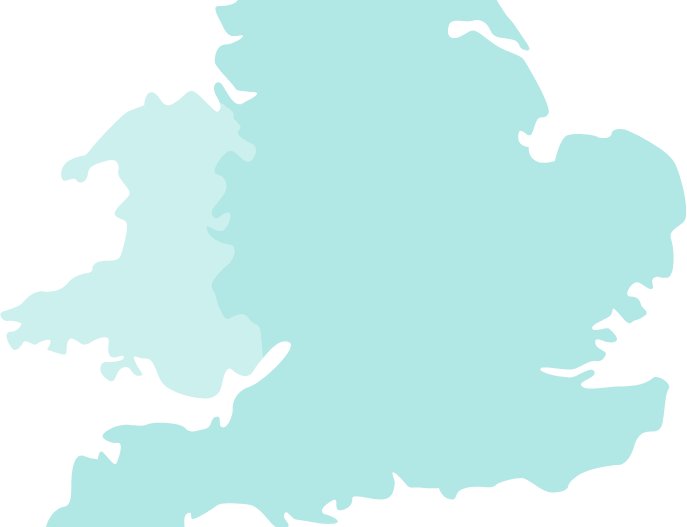
Reciprocal IVF treatment is also available from as little as £123 per month with our payment plan options*.
For more details visit our payment plans page.
*£123 payment plan is based on our Reciprocal IVF package with a 50% deposit, paid over 36 months with an interest rate of 9.9% APR fixed. Payment plans provided by third party humm financial services, eligibility criteria apply, application process required.





